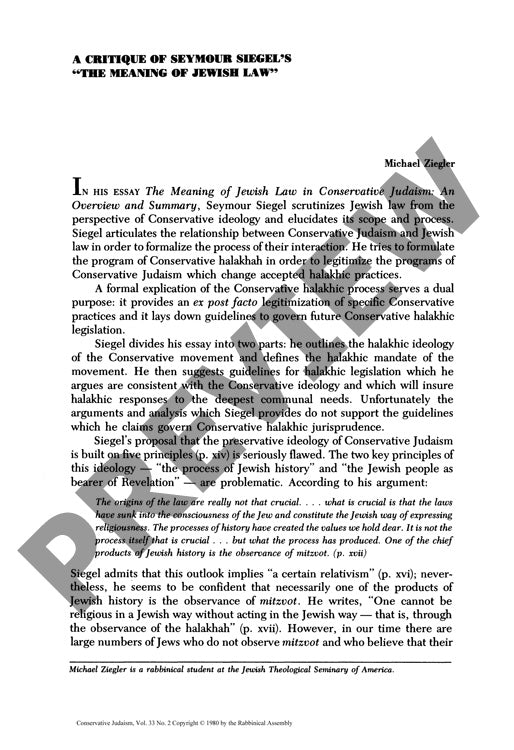A Critique of Seymour Siegels the Meanin
Couldn't load pickup availability
Seymour Siegel's influential essay "The Meaning of Jewish Law" attempts but ultimately fails to reconcile Conservative Judaism's ideological foundations with traditional halakhic jurisprudence. Through systematic textual analysis and philosophical critique, fundamental flaws emerge in Siegel's five-principle framework, particularly in his concepts of "the process of Jewish history" and "the Jewish people as bearer of Revelation." His reliance on historical relativism and the construct of "catholic Israel" as the ultimate arbiter of halakhic change creates logical inconsistencies and opens the door to potentially unlimited communal autonomy in religious practice. By prioritizing individual ethical sensitivities over traditional precedent, Siegel's methodology effectively reduces divine commandments to communal projections and transforms halakhic jurisprudence from a divine mandate into a consensus of individual opinions. While his approach offers solutions to contemporary halakhic challenges, it fundamentally alters traditional conceptions of Jewish law by elevating subjective moral standards above Torah authority, undermining his dual objectives of legitimizing existing Conservative practices and establishing guidelines for future halakhic legislation.

More Information
-
Physical Description
-
Publication Information
Published 1980
ISBN
-
Publication Credits
Michael Ziegler

